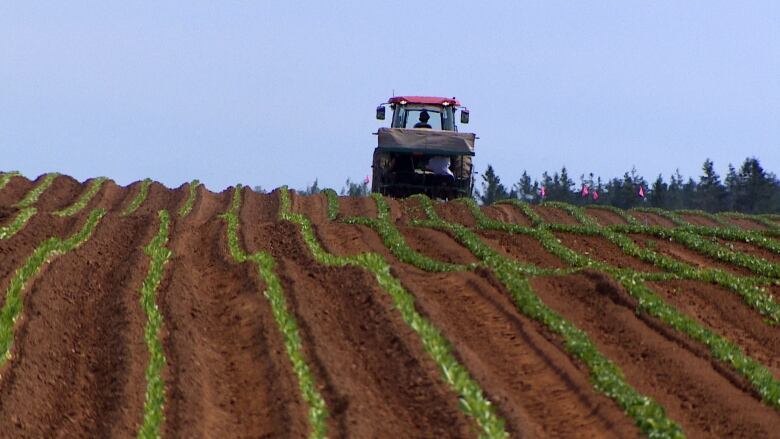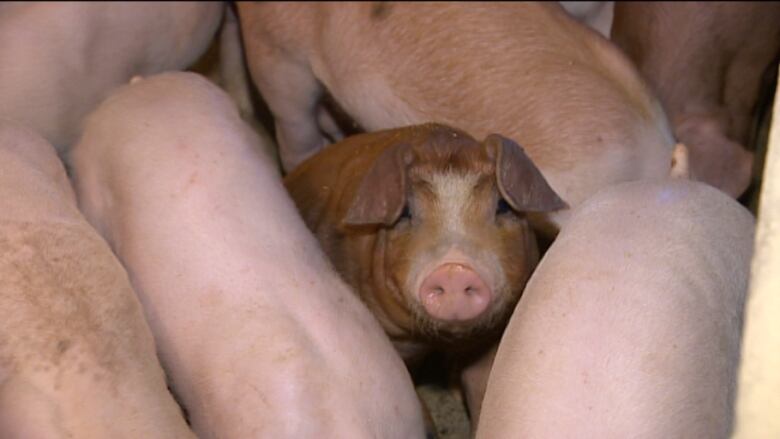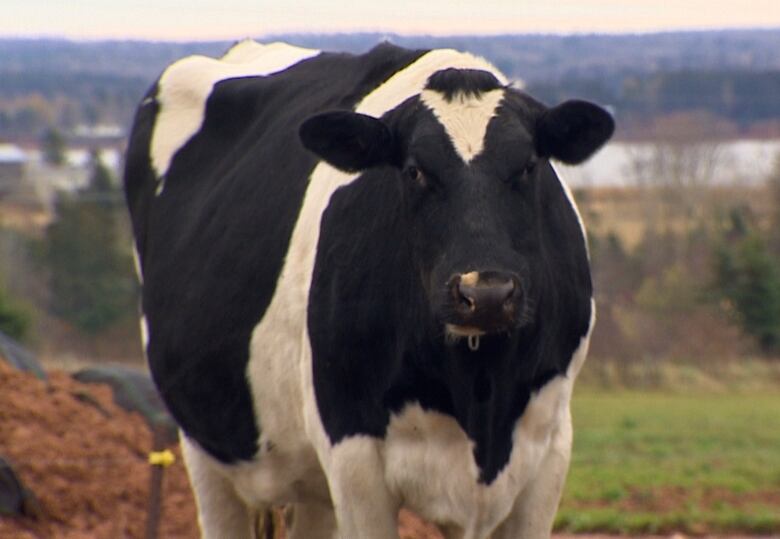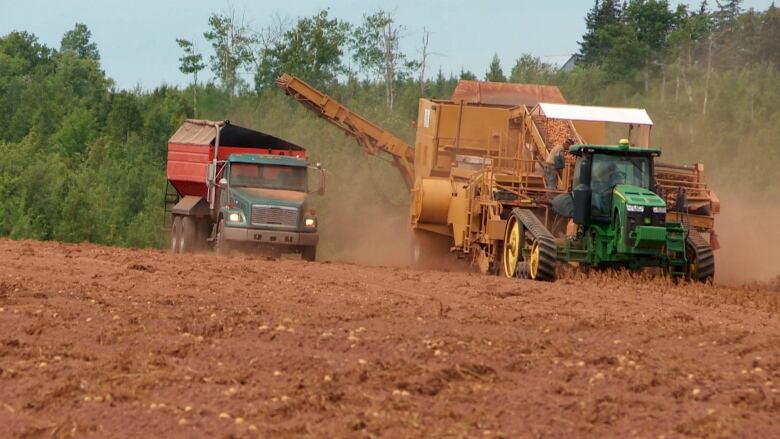Federal relief for Canadian food industry falls short of what is needed, says P.E.I. Federation of Agriculture
Farmers need help now for spring planting, says federation

The P.E.I. Federation of Agriculture says $252 million in federal funding announced Tuesday to help farmers and food processors through the COVID-19 pandemic is "a start," but falls far short of what advocacy groups have been calling for.
"It's a long ways from what we were asking," said Ron Maynard, president of the P.E.I. Federation of Agriculture.
The federal package includes:
-
$50 million to purchase surplus production, which Prime Minister Justin Trudeau said would then be distributed to organizations that address food insecurity, like food banks.
-
$77 million for food processors to help them retrofit and expand to deal with a backlog of livestock in the country, and to increase worker safety.
-
A $125 million boost to the AgriRecovery fund, a program that helps farmers during disasters, meant to help beef and pork producers who have to feed their animals for longer because there are fewer markets to sell them.

Last week the Canadian Federation of Agriculture of which the P.E.I. federation is a member group had called for an emergency aid package of $2.6 billion, 10-times today's announcement, which Trudeau called "an initial investment."
"What's not in the package right now is some dollars right now, up front for those commodities that are the hardest hit," said Maynard.
Among those commodities, according to Maynard, arefresh vegetables, which would normally be destined for the restaurant industry.
Market disrupted
Greg MacKenzie of MacKenzie Produce in Stratford said the market for cabbage for the coleslaw industry dropped 60 per cent "in a matter of a couple days." That left hiscompany with 544,000 kilograms of cabbage in storage, and led himto eliminate cabbage from his early plantings this springfor the first time in more than 20 years.
MacKenzie said he'd need some time to review what Ottawa had put forward "to see how these programs are going to be rolled out," but noted "the numbers are quite different from what the [Canadian] Federation of Agriculture was looking for."

Maynard said it's a "critical time" for producers facing continued uncertainty over what markets might have recovered by the time their products are ready to be harvested and sold.
"The month of May on Prince Edward Island is when crops are planted," he said. The decisions producers make now over what and how much to plant they'll "have to live with for the next six months to a year."
"There's people that are hurting right now, so that's the concern that we have."
Long-term impacts
The P.E.I. Potato Board said Island farmers who produce seed potatoes are among those expecting a significant revenue shortfall this year.
General manager Greg Donald said acres planted in potatoes will be down on P.E.I. for 2020. Processor Cavendish Farms has asked its growers to provide 15 per cent fewer potatoes, Donald said, while the board itself is asking other producers to reduce their acreage by 10 per cent in response to reduced demand.

That overall reduction in acres will lead to "up to $5 million in seed that isn't going to be needed," said Donald.
It takes years to produce potato seed, Donald said, and reduced plantings of seed potatoes this year could affect the industry down the road.
"Being very conscientious that there is a lot of need, not just in the potato industry if there can be assistance, seed and seed growers are the foundation of our business."
COVID-19: What you need to know
What are the symptoms of COVID-19?
Common symptoms include:
-
Fever.
-
Cough.
-
Tiredness.
But more serious symptoms can develop, including difficulty breathing and pneumonia, which can lead to death.
Health Canada has built aself-assessment tool.
What should I do if I feel sick?
Isolate yourself and call 811. Do not visit an emergency room or urgent care centre to get tested. A health professional at 811 will give you advice and instructions.
How can I protect myself?
-
Wash your hands frequently and thoroughly.
-
Avoid touching your eyes, nose and mouth.
-
Clean regularly touched surfaces regularly.
-
Practisephysical distancing.
More detailed information on the outbreak is available on thefederal government's website.












_(720p).jpg)


 OFFICIAL HD MUSIC VIDEO.jpg)
.jpg)



























































































